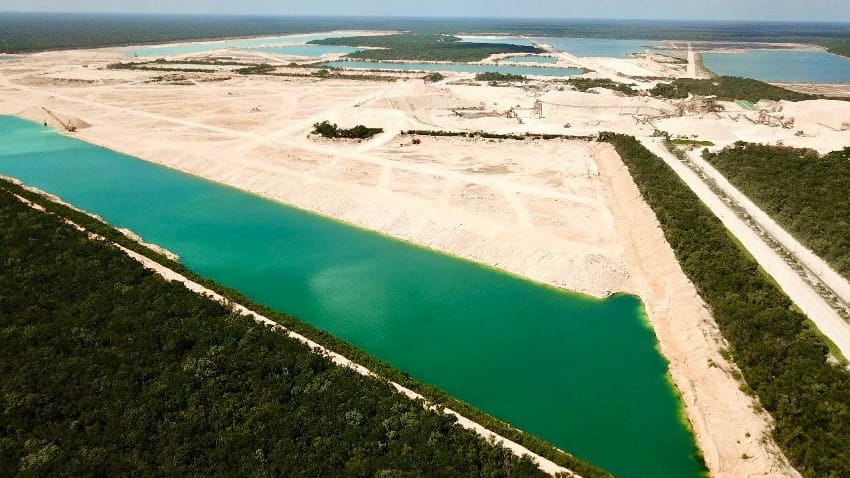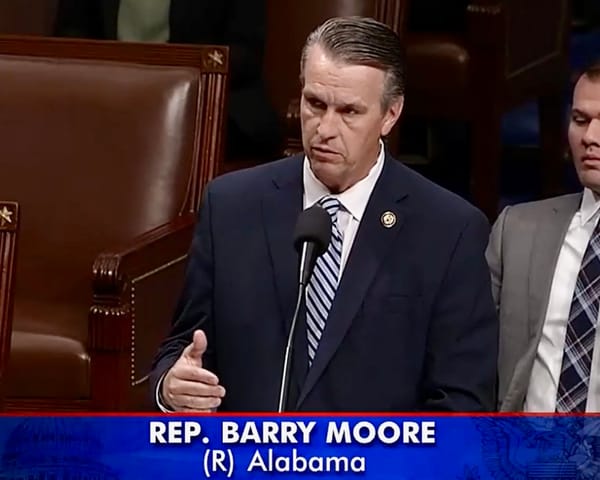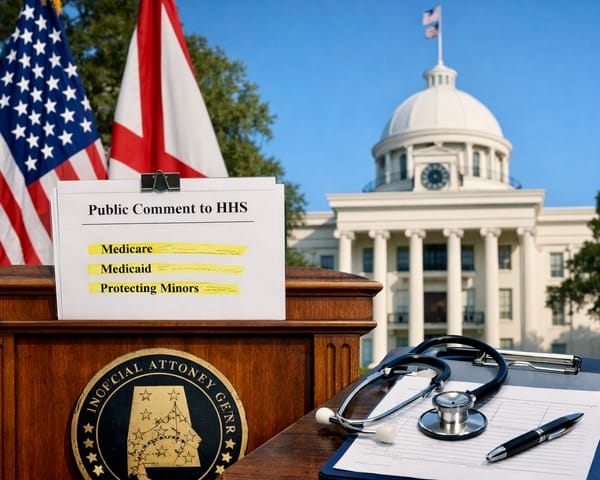Tuberville, Britt, Hagerty Reintroduce Bill to Punish Countries That Flout US Trade Pact
“The continued attempts to exploit Vulcan’s operation in the Yucatan Peninsula in Mexico is a disgrace to our longstanding trade agreement …”—Tommy Tuberville

U.S. Senators Tommy Tuberville (R‑AL), Katie Britt (R-AL) and Bill Hagerty (R‑TN) have reintroduced the Defending American Property Abroad Act, targeting foreign governments in the Western Hemisphere that illegally seize U.S. assets under agreements like USMCA. The Act is a response to repeated attempts by the Mexican government to take over Alabama-based Vulcan Materials’ deep‑water port in Quintana Roo.
Tuberville, who originally cosponsored the bill during the 118th Congress, sharply criticized Mexico’s actions. “For years, the Mexican Government has shown undue aggression toward American businesses, primarily Alabama’s Vulcan Materials,” he said. “The continued attempts to exploit Vulcan’s operation in the Yucatan Peninsula in Mexico is a disgrace to our longstanding trade agreement …”
“The threats toward Vulcan’s lawfully permitted, U.S.-owned deep-water port from the Government of Mexico, even under a new president, have not ceased,” said Senator Britt. “Mexico continues to flagrantly violate international law with its actions, putting America’s and Alabama’s economic and national security at risk — and it won’t stand. I’m proud to fight for the rule of law and join Senator Hagerty in introducing the bipartisan Defending American Property Abroad Act of 2025. This reaffirms the U.S. will impose crushing consequences if the Government of Mexico continues to execute its illegal scheme against Vulcan’s property.”
Hagerty condemned the seizures as theft. “Under the leadership of [AMLO] and now … Claudia Sheinbaum, the Mexican government is committing a blatant theft against a major American company,” he stated. Hagerty warned that no country should be allowed to bully U.S. firms without facing consequences.
The bill would empower the Department of Homeland Security to bar vessels from U.S. ports if they are linked to foreign‑seized U.S. assets. It also strengthens the U.S. Trade Representative’s authority to probe and act against governments that expropriate or nationalize U.S. property.
In May of 2022, Mexican President Andrés Manuel López Obrador ordered the closure of Vulcan’s site in Quintana Roo, citing contract breaches. Since then, enforcement actions—lawsuits, military blockades and police presence—have persisted. In late 2022, he elevated the site to a protected area. Critics say the move violated USMCA rights. Vulcan has sought arbitration through the World Bank’s ICSID, claiming de facto expropriation and asking for roughly $1.5–1.9 billion in damages.
Senate cosponsors of the bill include Senators Angela Alsobrooks (D‑MD), Marsha Blackburn (R‑TN), Ted Budd (R‑NC), Tim Kaine (D‑VA) and Roger Wicker (R‑MS). In the House, Rep. August Pfluger (R‑TX‑11) introduced the companion bill.
Implications for US‑Mexico ties
This dispute has intensified long-standing tensions over the rule of law in Mexico. Vulcan, with over 35 years of regional operations, says its quarry and port did not damage the environment. Yet Mexican officials accused the firm of ecocide—a move eventually revoked by armed forces in March 2023.
Prominent observers have warned that such expropriation efforts risk undermining investor trust in Mexico and could invite U.S. retaliation or tariffs. The controversy has earned attention from outlets like Reuters, AP, Financial Times and Bloomberg, warning it could chill foreign investment.




